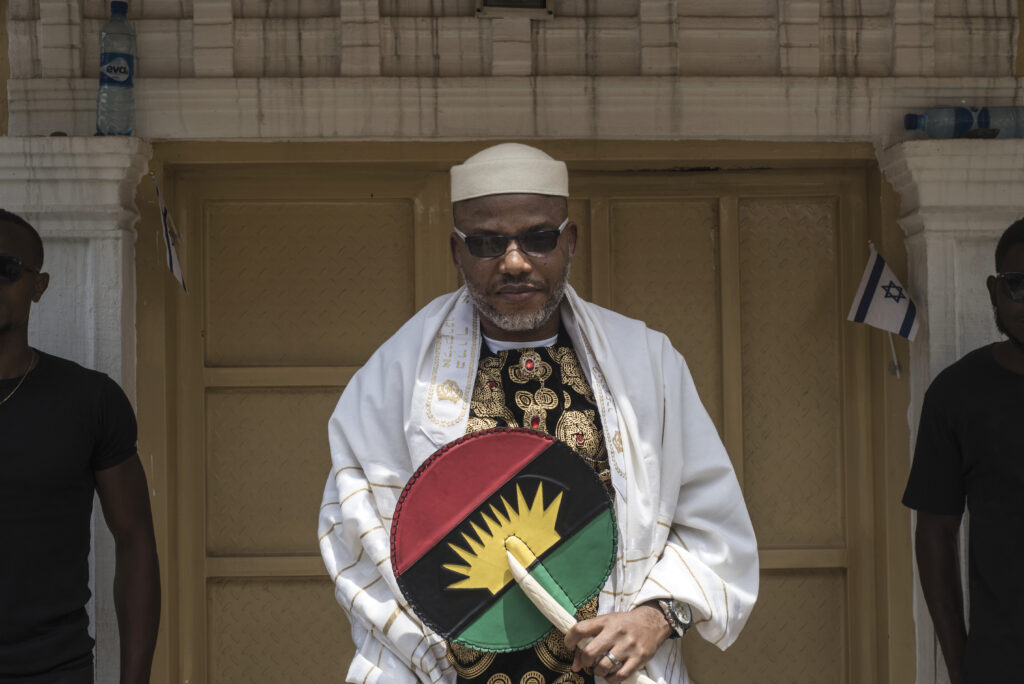The years-long legal drama of Nigerian separatist leader Nnamdi Kanu appears to be heading towards a likely conviction after he declined again Tuesday to open his defence, to the exasperation of the judge.Kanu, leader of the banned group the Indigenous People of Biafra (IPOB), has long advocated for the independence of southeastern Nigeria, alleging the mistreatment of the Igbo ethnic group.It’s a contentious issue in Nigeria, which fought a brutal civil war from 1967 to 1970 over the secession of the self-declared Republic of Biafra.The prosecution has already laid out its arguments against the polarising leader on charges ranging from “terrorism” to publishing intentionally misleading broadcasts.Kanu, who has dismissed his lawyers to act as his own counsel, has thrown his case into disarray by claiming there are no charges against him, moving judge James Omotosho last week to plead with him to consult legal experts.Prosecutors argued Tuesday that Omotosho should schedule a ruling if there would not be a defence.At issue is the Terrorism (Prevention) Act 2011, which Kanu was originally charged under. It was replaced — and nullified — by the Terrorism (Prevention and Prohibition) Act 2022. Kanu, who wore a white Fendi tracksuit and repeatedly interrupted the judge, claimed that because he was charged under the first law, there is now “no charge against me”.Omotosho soberly asked Kanu Tuesday to find “counsel conversant in criminal proceedings”, adding: “My brother, I appeal to you in the name of almighty God.”- ‘Guns and bullets’ -Kanu, a dual Nigerian-British citizen who had long advocated independence via London-based Radio Biafra, drew the attention of the Nigerian government in 2015, when he said “we need guns and we need bullets”.IPOB rejected the notion that it was a literal call for arms. Following mass pro-Biafran protests that same year — the first since the civil war — Kanu was arrested while visiting Nigeria.He skipped bail in 2017 and fled the country after a military raid on his home. He was extradited from Kenya in 2021, in what his lawyers said was an illegal abduction.The case’s potential free speech implications, the alleged abuse by security forces against Kanu in both Kenya and Nigeria, as well as deadly crackdowns on peaceful pro-Biafra protesters over the years, all appear to have faded into the background as the case drags out.IPOB has been accused of violently enforcing regular “sit-at-home” orders that shut down markets, travel and schools across the southeast as a form of economic protest after Kanu’s re-arrest in 2021.IPOB has denied enforcing the protests violently, blaming criminals for doing so. The military is also accused of abuses in the southeast, including extrajudicial killings.
